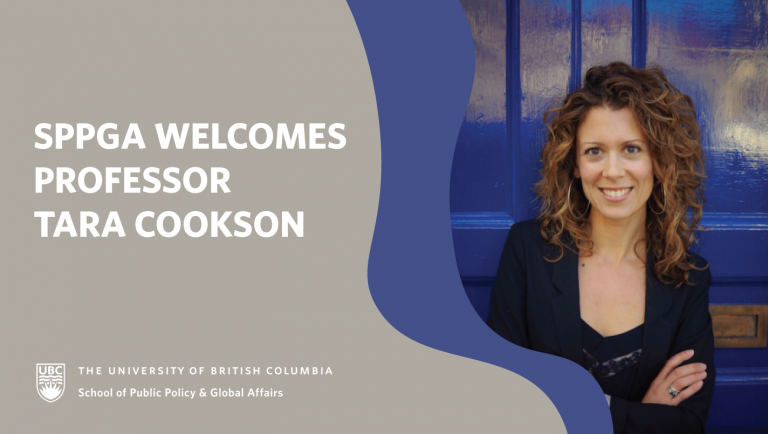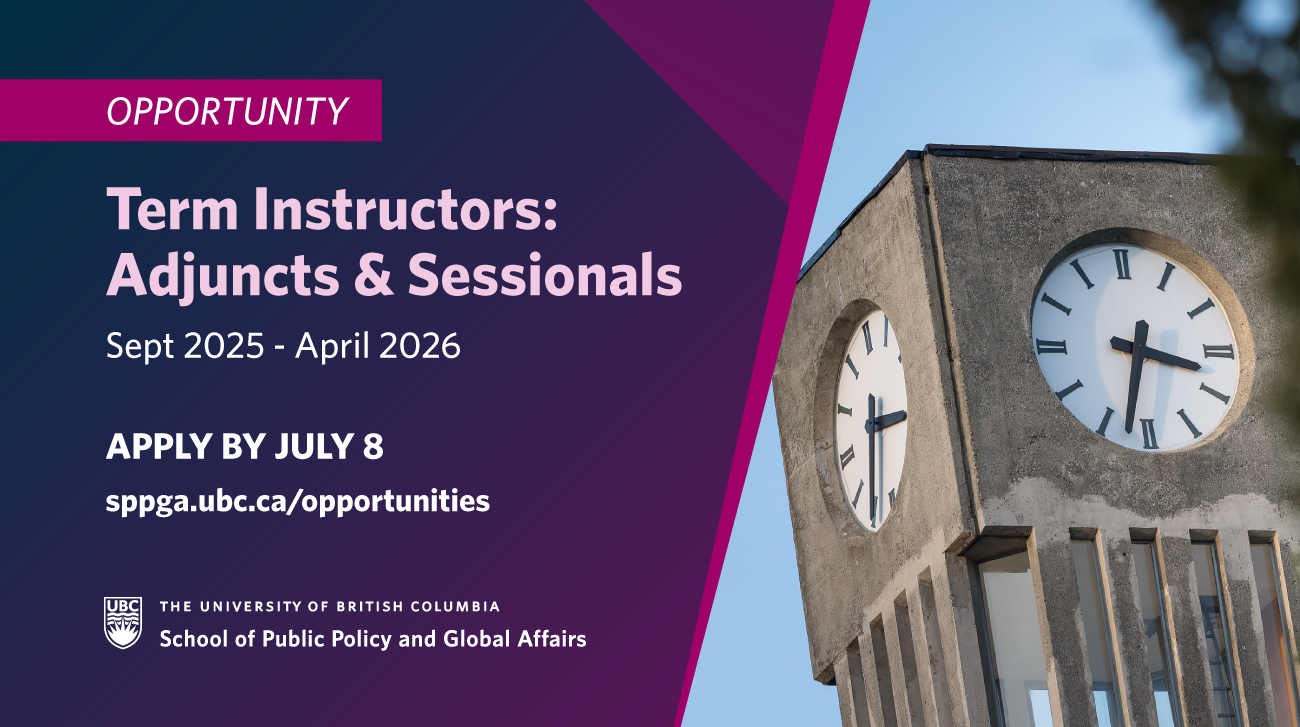

The School of Public Policy and Global Affairs (SPPGA) is thrilled to welcome Dr. Tara Cookson.
Dr. Cookson is Assistant Professor of Gender, Development, and Global Public Policy. She uses ethnographic and quantitative methods to study how power operates in development policy, with a focus on gender data, social protection, and care work. Her approach to public scholarship integrates academic research, practice-oriented publications, and direct engagement with international policy processes. Learn more about her by visiting her SPPGA profile.
We spoke to Professor Cookson to learn more about her scholarship, her activism, and her engagement with Master of Public Policy and Global Affairs students and the school.
SPPGA: You’re an expert in gender, development, and global public policy. What drives your work?
Prof. Cookson: A decade ago, I watched as government funding cuts forced women’s resource centres across B.C. to close their doors. The Kelowna Women’s Resource Centre, where I was a volunteer and board member, was among them. The volunteers and staff at the centre had been providing essential services to vulnerable women in the city and surrounding areas for over 25 years, connecting them to housing, employment, legal advice and shelters, and raising awareness about serious problems in our community like gender-based violence.
I came to understand the closures of these centres as a result of ‘uncaring’ policy priorities. I’ve worked in many countries around the world and seen similarly uncaring priorities sideline women’s rights in the name of fiscal austerity, ‘responsible’ social spending, and more recently, data-driven policymaking and funding. My work is driven by the conviction that a more caring world is possible, and that care can be baked into public policy.
SPPGA: What projects are you working on currently?
Prof. Cookson: My research investigates how power operates in development, and documents development’s hidden costs – especially as these relate to care work. I’m building on my book, Unjust Conditions, which showed how one of the world’s biggest antipoverty programs was applauded as ‘efficient’ because of what program evaluations didn’t count: the vast sums of unpaid time and care work required of the mostly female participants.
Now I’m zooming out from an interest in measurement to look at data-driven development more broadly. How does ‘data-driven development’ shape what gets prioritized, and who gets funded, when it comes to policies and interventions seeking gender equality? And how are technology and data science changing the field of Gender and Development? What happens when tech companies invest more in data than most nation states, or when digital technologies are increasingly used to deliver development programs and services? I’ll be exploring these questions in a few different geographies, including a humanitarian crisis at the Venezuela-Colombia border, and a region of rural development here in B.C.
SPPGA: Why is it important for academic research to play a role in policy making?
Prof. Cookson: As academics we have the unique opportunity to produce slow research: to immerse ourselves in what is already known, to build trust in communities, to test hypotheses over extended periods of time or to allow them to emerge through ethnographic engagement. In policy making and philanthropic funding, research is often produced at a break-neck pace, and far too often by management consulting companies. This disconnect between the slow research of academia and the rapid studies driving funding and implementation choices became very clear to me in my cash transfer research, where the policies seemed to be ignoring what feminist researchers had been writing about for nearly a decade.
This gap pushed me to start a feminist research collective called Ladysmith, and together with my co-founder Dr. Lorena Fuentes, we built a team that places academic research and feminist theories of change in service of development policymaking and program design. Our work with UN institutions, national aid offices, and tech companies over the past five years shows that there’s a hunger for rigorous, theoretically-grounded and feminist research–it just needs to be accessible, and sometimes a little less slow!
SPPGA: What are you most excited about in terms of joining SPPGA?
Prof. Cookson: I’m over the moon about joining a public policy school that sees itself as a steward of positive change on a global scale — that level of commitment and ambition is highly motivating. This is also a school where interdisciplinarity and applied research are thriving — faculty are shaping policy processes in spheres as diverse as nuclear energy, protracted conflict and food systems, and accompanying students in bridging the research-policy gap through experiential learning like the Global Policy Project. It’s really a dream for someone committed to scholar-activism!
SPPGA: Where can we contact you?
Prof. Cookson:
Email: tcookson@mail.ubc.ca
Twitter: @tpcookson
Personal website: http://taracookson.com


